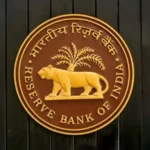
- The Supreme Court has declined to relax GRAP-4 measures in Delhi-NCR until a sustained reduction in air pollution levels is observed.
- GRAP-4 restrictions include bans on truck entry and construction, with enforcement flagged as inadequate by the court.
- Next hearing scheduled for December 5, with strict accountability directed toward states and air quality authorities.
Why Is the Supreme Court Reluctant to Relax GRAP-4 Restrictions?
Delhi’s persistent air pollution crisis remains critical, prompting the Supreme Court to maintain strict measures under GRAP-4. These include prohibiting truck entry, halting construction activities, and enforcing other anti-pollution directives. Despite a slight improvement in the Air Quality Index (AQI), with levels dropping to the ‘poor’ category for the first time in over a month, the court insists on visible and sustained progress before considering any relaxation.
The bench, led by Justices Abhay S Oka and Augustine George Masih, expressed dissatisfaction with the poor implementation of GRAP-4, highlighting a lack of coordination among key entities such as the Municipal Corporation of Delhi, Delhi Police, and Delhi Pollution Control Committee. This lack of enforcement, combined with states’ failure to comply with directives like compensating construction workers affected by the restrictions, led to a directive for the chief secretaries of Delhi, Haryana, Uttar Pradesh, and Rajasthan to appear virtually on December 5.
What’s the Current State of Air Quality in Delhi?
Delhi’s air quality, which remained in the ‘very poor’ or ‘severe’ category for over 30 consecutive days, has shown minor improvement. The city’s AQI moved to 273 (‘poor’ category) on Monday, following a 24-hour average AQI of 285 on Sunday. While these numbers indicate progress, they remain far from acceptable levels, keeping emergency measures in place.
The court emphasized the need for stronger enforcement and directed the Commission for Air Quality Management (CAQM) to ensure coordination among agencies to implement GRAP-4 measures effectively.
Conclusion
The Supreme Court’s firm stance underscores the urgency of tackling Delhi’s air pollution crisis. While recent improvements in AQI are encouraging, sustained efforts and better coordination among agencies are vital to achieve meaningful progress. The next hearing on December 5 will determine whether stricter accountability and implementation can drive long-term solutions for cleaner air in the capital region.




































Leave a Reply